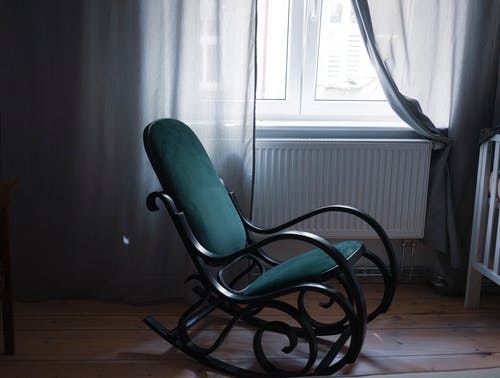The objective of this module is to provide information and generate discussion about ethical issues associated with long-term health care and health care provided outside of a traditional hospital setting.The main categories of issues addressed are as follows:
NURSING HOMES
 Nursing homes provide extended nursing, personal, or custodial care for individuals requiring those services because of their illness, physical infirmity, or advanced age .Nursing homes are not the primary care facility for individuals who have acute illness. Typically, nursing home residents are unable to live independently .Residents often need assistance with day-to-day activities like bathing, getting dressed, eating, and washing their clothes. In general, nursing homes must obtain a license from a licensing agency in order to operate. A description of and guidelines for Florida nursing homes are contained within Florida Statute Chapter 400-Part II.
Nursing homes provide extended nursing, personal, or custodial care for individuals requiring those services because of their illness, physical infirmity, or advanced age .Nursing homes are not the primary care facility for individuals who have acute illness. Typically, nursing home residents are unable to live independently .Residents often need assistance with day-to-day activities like bathing, getting dressed, eating, and washing their clothes. In general, nursing homes must obtain a license from a licensing agency in order to operate. A description of and guidelines for Florida nursing homes are contained within Florida Statute Chapter 400-Part II.
One area of ethical concern regarding nursing homes relates to resident privacy. A nursing home is unlike a traditional home setting. The hospital-like environment of a nursing home can make residents feel as though their autonomy has eroded. Typical complains among residents include that they have lost control over everyday matters such as what they will wear, eat, and watch on television.Such perceived loss of control or autonomy can contribute to depression and feelings of helplessness. Further, residents might be asked to follow a schedule that is set for them by the nursing home, which can upset their regular routine. This can make the adjustment for a new nursing home resident rather difficult. Residents might also feel that they lack privacy if they are required to share bedrooms, bathrooms, and common areas. Limitations on privacy can interfere with the resident’s ability to maintain control over life activities such as with whom they will socialize and whether they will be sexually active.
Quality of care in nursing homes raises several ethical issues. There can be conflicts between nursing home residents and staff members concerning what constitutes appropriate care. At times, the nursing home staff might misperceive or misinterpret a resident’s desires.This can occur if the decision-making capacity of a disabled elderly resident fluctuates, the staff’s attempts to determine the resident’s wishes. Grief, confusion, and/or the use of certain medications, for example, can temporarily interfere with a resident’s ability to make a decision. Further, if the staff is not attentive enough to a resident’s condition, they might assume that the resident is not capable of making decisions, when in fact the person is capable of doing so. A resident might struggle with making a financial decision, for example, but maintain the ability to make a decision about his/her health care.
The issues of neglect and abuse are important ones to raise when discussing nursing homes. Nursing home residents tend to be a rather vulnerable population because of age, illness, and finances.At times, residents have been taken advantage of, ignored, and abused by nursing home staff. Further, there is concern that neglect and abuse might be underreported because residents fear that their care will be detrimentally affected if they voice their complaints. Thus, the monitoring of nursing homes is crucially important. Alternatively, there have also been cases where residents have abused nursing home staff both physically and verbally. Depression, grief, and confusion, for example, might cause a resident to mistreat a staff member.
QUESTIONS TO CONSIDER
-
If losing autonomy is a significant concern amongst nursing home residents, what can be done to avoid this problem? A concerted effort should be put forward by nursing home staff and family members to ensure that residents are given the opportunity to voice their wishes and to continue to make decisions that they are capable of making. Further, many elderly residents might not be capable of significantly modifying their daily routine. Thus, if the nursing home environment can be altered to accommodate residents, such as changing a mealtime or lowering a bed, this might help to maintain the feeling that they have some level of control over their own lives.
- Can an elderly patient be admitted involuntarily into a nursing home? A patient should not be admitted into a nursing home until appropriate consent has been obtained from that individual or from his/her surrogate decision-maker.At times, elderly patients have been admitted into nursing homes under ambiguous circumstances.For example, families have admitted their elderly relatives into nursing homes without a surrogate decision-maker being explicitly appointed. In general, this type of practice should not be permitted.
RELEVANT LINKS AND RESOURCES
- Agency for Health Care Administration: Nursing Home Guide Watch List
- Aging Internet Information Notes: Nursing Homes
- Barton CD et al. Clinicians’ judgment of capacity of nursing home patients to give informed consent. Psychiatric Services 1996;47(9):956-960.
- Boyle P. Multiculturalism in nursing homes. In Olsen E, Chichin ER, Libow LS, Eds. Controversies in Ethics in Long-Term Care. New York: Springer Publishing Company, 1995, pp.: 15-28.
- Bradley EH, Wetle T, Horwitz SM. The patient self-determination act and advance directive completion in nursing homes. Archives of Family Medicine 1998;7(5)417-23
- Brummel-Smith K, Brody SJ. The nursing home population. In Gamroth LM, Semradek J, Tornquist EM, Eds. Enhancing Autonomy in Long-Term Care: Concepts and Strategies. New York: Springer Publishing Company, 1995, pp.: 15-33.
- Collopy BJ. Home versus nursing home: etting beyond the differences. In Olsen E, Chichin ER, and Libow LS, Eds. Controversies in Ethics in Long-Term Care. New York: Springer Publishing Company, 1995, pp.: 57-72.
- Department of Health and Human Services, Office of Inspector General: Draft OIG Compliance Program Guidance for Nursing Facilities
- Hayley DC et al. Ethical and legal issues. In Medical Care of the Nursing Home Resident: What Physicians Need to Know. Pennsylvania: American College of Physicians, 1996, pp.: 143-154.
- Kapp MB. The Involuntary status of nursing facility admissions: Legal, practice, and public policy implications. In Katz PR, Kane RL, Mezey MD, Eds. Emerging Systems in Long-Term Care. New York: Springer Publishing Company, 1999, pp.: 149-178.
- Medicare: Nursing Homes
- National Citizens' Coalition for Nursing Home Reform
- Nursing Home Abuse and Neglect Resource Center
- Nursing Home Compare (provided by Medicare)
- Office of Inspector General: Nursing Home Resident Assessment-Quality of Care
- Reporting Complaints about Nursing Homes
ASSISTED LIVING FACILITIES
 An assisted living facility provides housing in a residential setting for individuals who need limited health care monitoring.An assisted living facility usually provides meals and personal services for extended periods of time. Assisted living facilities are often located in buildings, private homes, or other residential facilities. A description of and guidelines for assisted living facilities in Florida are contained within Florida Statute Chapter 400-Part III.
An assisted living facility provides housing in a residential setting for individuals who need limited health care monitoring.An assisted living facility usually provides meals and personal services for extended periods of time. Assisted living facilities are often located in buildings, private homes, or other residential facilities. A description of and guidelines for assisted living facilities in Florida are contained within Florida Statute Chapter 400-Part III.
An assisted living facility might allow tenants to exert a greater level of control over their daily activities than they would have in other settings like a nursing home. Tenants often decide how their living space will be arranged and can have a fair amount of flexibility in determining an eating schedule.Some assisted living facilities have small kitchens in the tenant’s apartments. Further, since many assisted living tenants have an apartment to themselves, they might have a stronger sense of privacy and autonomy.
QUESTIONS TO CONSIDER
-
How does a nursing home differ from an assisted living facility in terms of the medical services provided? In general, nursing homes provide a greater range of health care services than an assisted living facility would. An assisted living facility is geared toward providing non-medical services instead of offering extensive health care services.
-
Why would an elderly individual reside in a nursing home instead of an assisted living facility? This could depend on the medical needs of the individual.If extensive medical services are needed, a nursing home might be a more appropriate option. Further, economic considerations are also a major factor that can affect the decision. Depending on the elderly person’s financial status, health insurance plan, and Medicare guidelines, a nursing home might be a more feasible option than an assisted living facility.
RELEVANT LINKS AND RESOURCES
HOME HEALTH CARE
 To an increasing degree, elderly individuals are receiving health care in their own homes or places of residence. Frequently, family members provide this type of care.In-home care can also be provided by a home health agency (HHA), which is an organization that provides health care staff, services, and supplies to the homes of individuals.An HHA typically must be recognized by the relevant state before it can operate. A description of and guidelines for home health agencies in Florida are contained within Florida Statute Chapter 400-Part IV.
To an increasing degree, elderly individuals are receiving health care in their own homes or places of residence. Frequently, family members provide this type of care.In-home care can also be provided by a home health agency (HHA), which is an organization that provides health care staff, services, and supplies to the homes of individuals.An HHA typically must be recognized by the relevant state before it can operate. A description of and guidelines for home health agencies in Florida are contained within Florida Statute Chapter 400-Part IV.
The main benefit of home health care is that ill individuals can receive the health care that they require while staying in a familiar environment, which may improve the chances of recovery.This arrangement can help to maintain the person’s independence and sense of identity.By staying close to familiar possessions, family, friends, and neighbors, this could minimize the disruption within the person’s life.
Drawbacks to home health care include that it may be profoundly difficult to find suitable and qualified help.The stress of providing care in a person’s private home has lead to a high turnover rate amongst home care staff.Also, a home care provider might be reluctant to take on a new client depending on where that person lives, the type of needs he/she has, and the amount of work hours that will be expected. Further, although home health care may have been seen as a way to keep health care costs down, it is not clear that money will be saved over a more community-like setting such as nursing home.
Some elderly individuals who require in-home help have not received that care and attention that they need. Since individuals who require in-home help can be especially vulnerable, because they might lack mobility for example, home care staff might be tempted to take advantage of a client.They might overcharge for the number of hours actually worked or fail to show up at a scheduled time. Since there are not as many staff members around to monitor neglect and abuse as there would be in a more community-like setting, there is more of a burden on the individual client to report misconduct.
QUESTIONS TO CONSIDER
-
What are the potential drawbacks to having a family member provide in-home care to an ill relative? The responsibility for providing care can be very taxing emotionally, psychologically, and physically for family members.The amount of stress that providing care can cause varies greatly depending on the nature, severity, and duration of the illness.For instance, if a family member has a progressive debilitating illness like Alzheimer’s disease, the caretaker might feel that providing care interferes with his/her ability to maintain a personal life. Further, determining whether the caretaker should receive payment for providing care could potentially lead to conflict between family members.
-
What kinds of measures are in place to prevent neglect and abuse in home care settings? Each state puts forward a variety of provisions regulating home health care practices in order to prevent misconduct.For instance, the state of Florida has established rules for minimum standards of care, for inspections of home care facilities, and for screening of home health staff.
RELEVANT LINKS AND RESOURCES
- Gallagher E. Ethical dilemmas in home care case management. J Healthc Manag 2002;47(2):85-97.
- Holstein MB. Bringing ethics home: A new look at ethics in the home and the community. In Holstein MB, Mitzen PB, Eds. Ethics in Community-Based Elder Care. New York: Springer Publishing Company, 2001, pp: 31-50.
- Homecare Online
- Kuhn D. Is home care always the best care. In Ethics in Community-Based Elder Care. Holstein MB, Mitzen PB, Eds. New York: Springer Publishing Company, 2001, pp: 187-199.
- Waymack M. The ethical importance of home care. In Holstein MB, Mitzen PB, Eds. Ethics in Community-Based Elder Care. New York: Springer Publishing Company, 2001, pp: 51-59.
GENERAL RELEVANT LINKS AND RESOURCES FOR LONG-TERM CARE



 Nursing homes provide extended nursing, personal, or custodial care for individuals requiring those services because of their illness, physical infirmity, or advanced age .Nursing homes are not the primary care facility for individuals who have acute illness. Typically, nursing home residents are unable to live independently .Residents often need assistance with day-to-day activities like bathing, getting dressed, eating, and washing their clothes. In general, nursing homes must obtain a license from a licensing agency in order to operate. A description of and guidelines for Florida nursing homes are contained within
Nursing homes provide extended nursing, personal, or custodial care for individuals requiring those services because of their illness, physical infirmity, or advanced age .Nursing homes are not the primary care facility for individuals who have acute illness. Typically, nursing home residents are unable to live independently .Residents often need assistance with day-to-day activities like bathing, getting dressed, eating, and washing their clothes. In general, nursing homes must obtain a license from a licensing agency in order to operate. A description of and guidelines for Florida nursing homes are contained within  An assisted living facility provides housing in a residential setting for individuals who need limited health care monitoring.An assisted living facility usually provides meals and personal services for extended periods of time. Assisted living facilities are often located in buildings, private homes, or other residential facilities. A description of and guidelines for assisted living facilities in Florida are contained within
An assisted living facility provides housing in a residential setting for individuals who need limited health care monitoring.An assisted living facility usually provides meals and personal services for extended periods of time. Assisted living facilities are often located in buildings, private homes, or other residential facilities. A description of and guidelines for assisted living facilities in Florida are contained within  To an increasing degree, elderly individuals are receiving health care in their own homes or places of residence. Frequently, family members provide this type of care.In-home care can also be provided by a home health agency (HHA), which is an organization that provides health care staff, services, and supplies to the homes of individuals.An HHA typically must be recognized by the relevant state before it can operate. A description of and guidelines for home health agencies in Florida are contained within
To an increasing degree, elderly individuals are receiving health care in their own homes or places of residence. Frequently, family members provide this type of care.In-home care can also be provided by a home health agency (HHA), which is an organization that provides health care staff, services, and supplies to the homes of individuals.An HHA typically must be recognized by the relevant state before it can operate. A description of and guidelines for home health agencies in Florida are contained within 